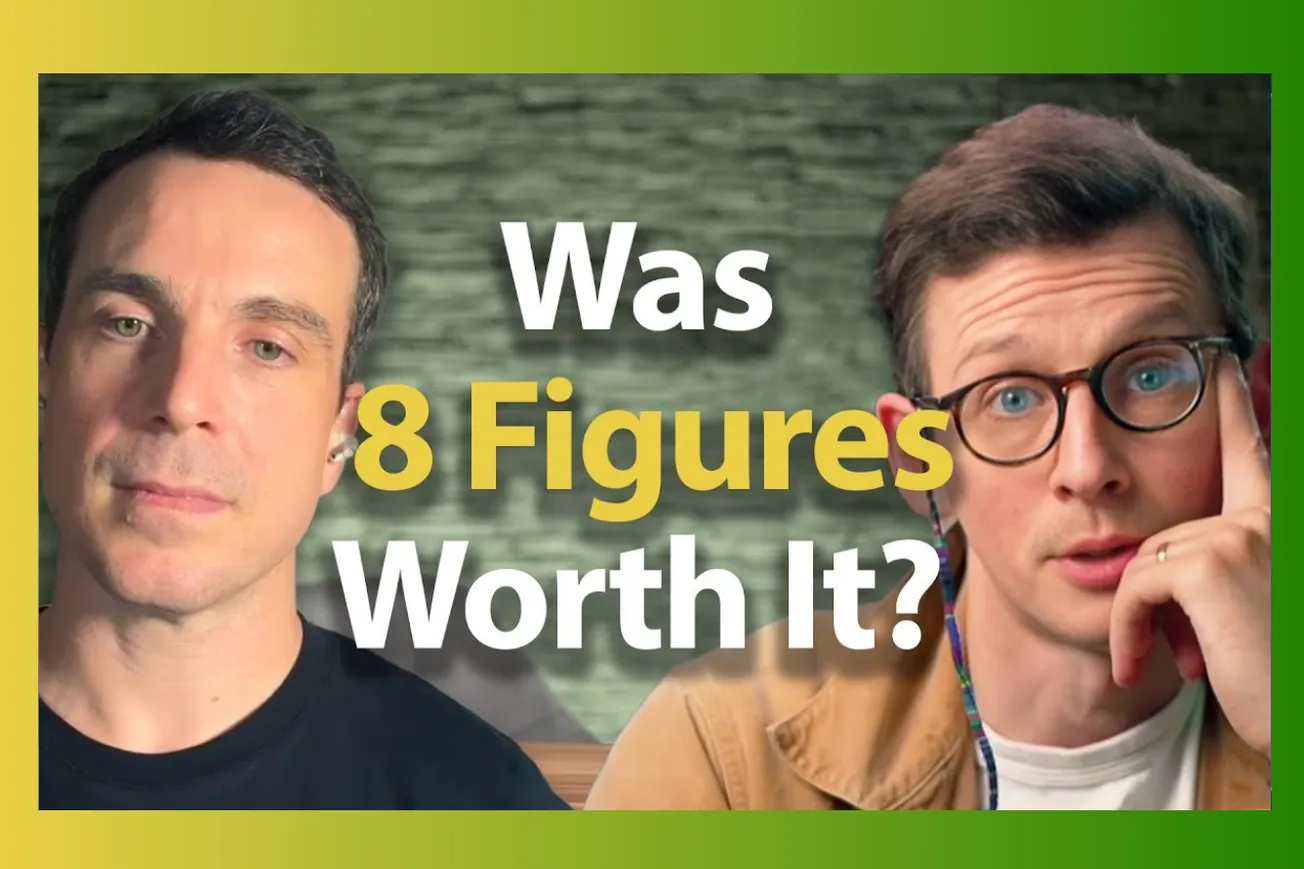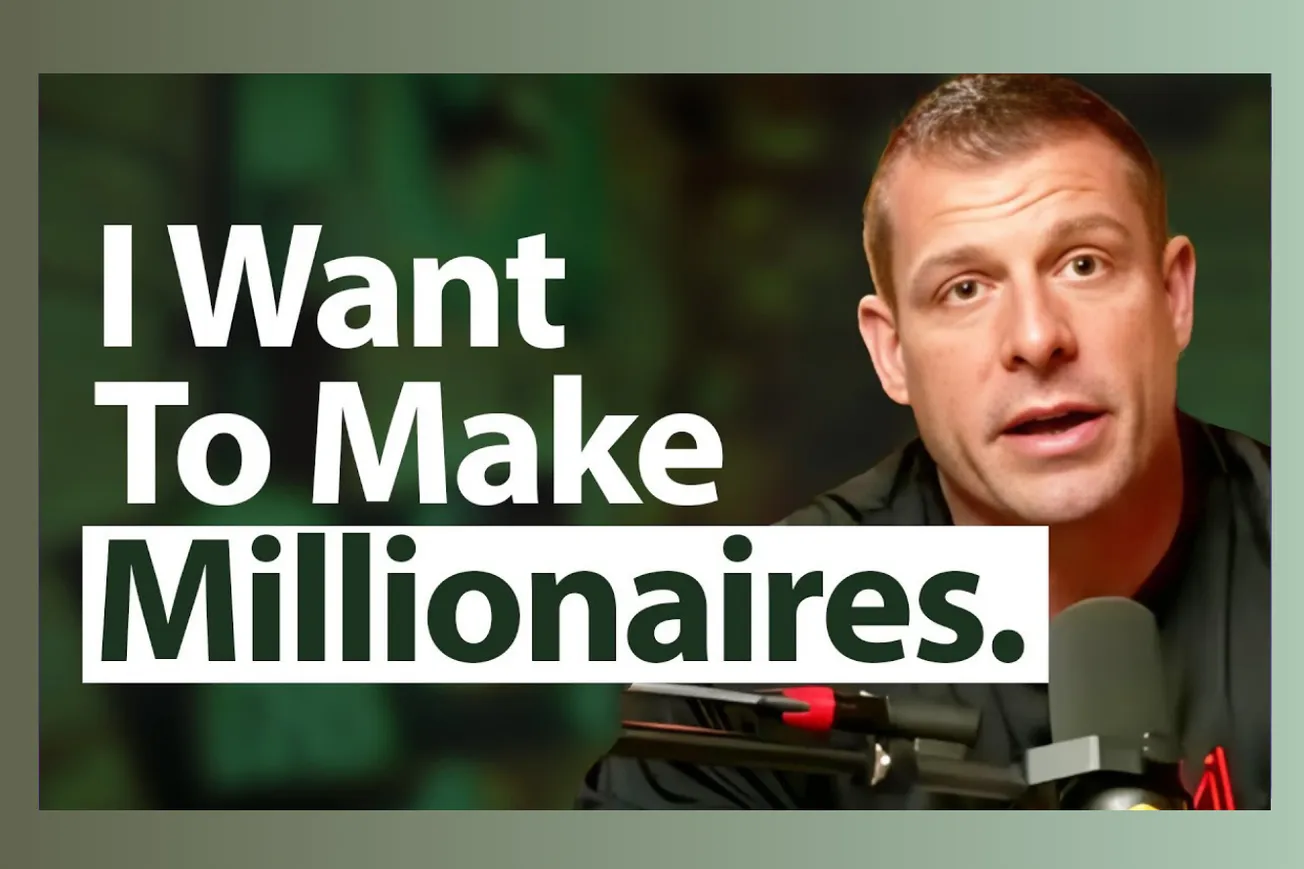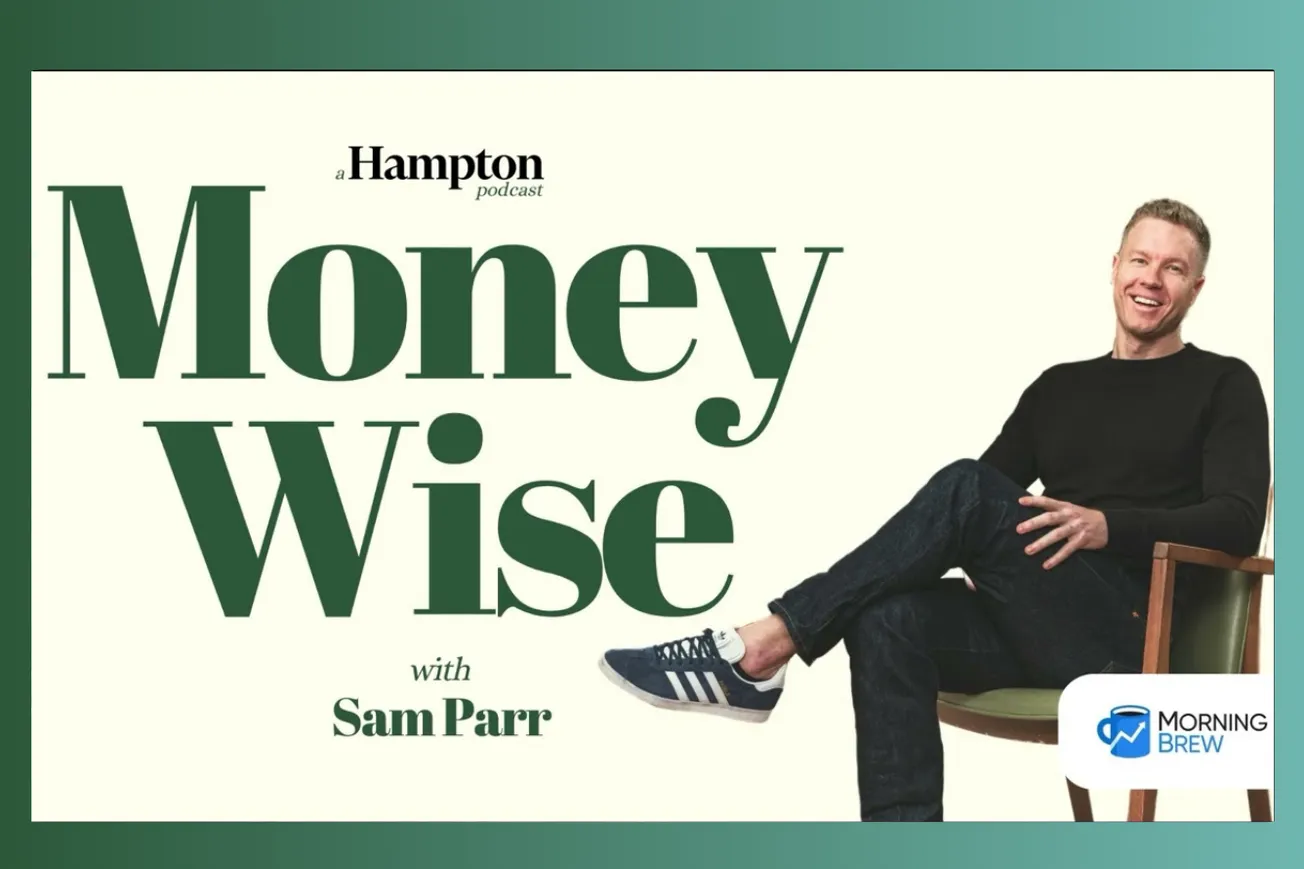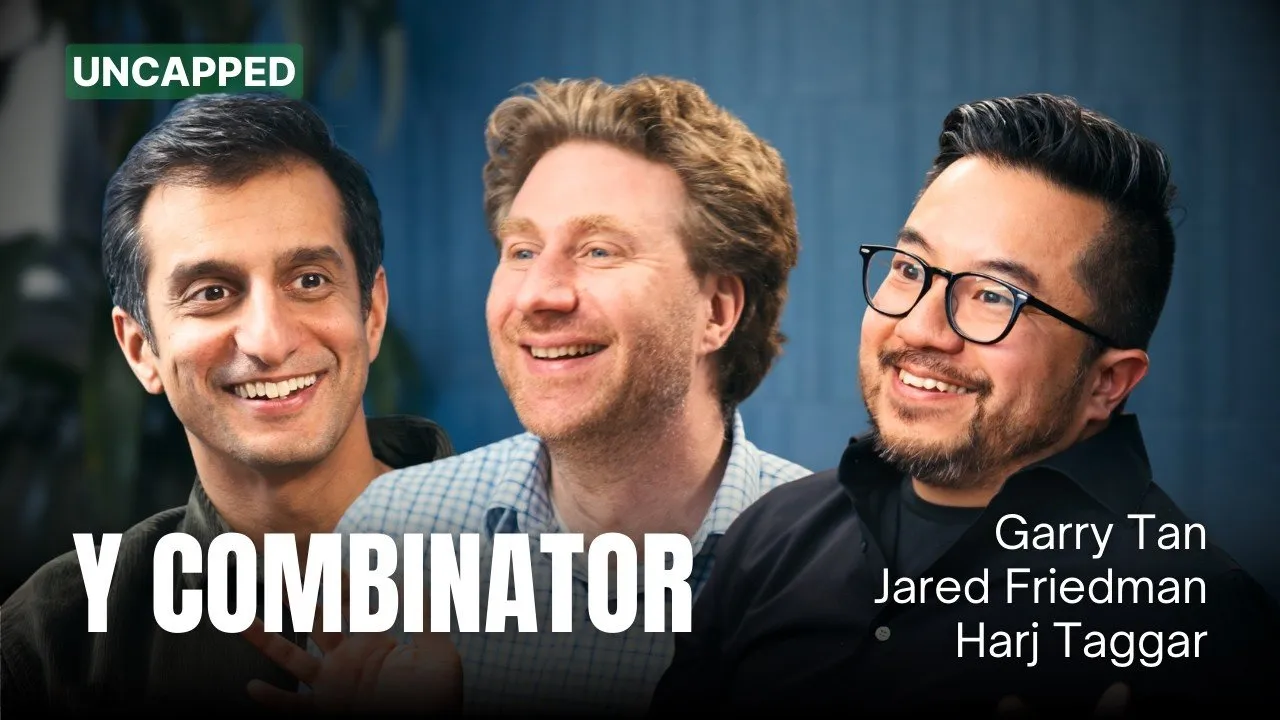Table of Contents
Jackie Lamport's revelations from interviewing over 100 wealthy individuals about the relationship between money and happiness, revealing why the "happiness threshold" is a myth and what actually matters for well-being.
After interviewing 100+ millionaires, one truth emerged: money doesn't make you happy - it only removes things that block happiness. This essay explores the "freedom number" vs happiness myths, why founders feel lost post-exit, and what wealth actually does to your life.
Key Takeaways
- Money cannot make you happy - it can only remove barriers to happiness like stress, debt, and time scarcity in a subtractive, not additive way
- The "happiness threshold" studies are misleading; there's no amount where money stops affecting happiness because money isn't the source of happiness
- Your "freedom number" matters more than happiness thresholds - it's the amount needed to remove financial constraints from life decisions
- Most successful founders experience deep loss after exits because they unknowingly traded hope and anticipation for cash
- The hedonic treadmill ensures that whatever your current net worth, you'll always want "one more zero" - the goalpost constantly moves
- Wealth creates new problems: social comparison, relationship paranoia, more possessions requiring management, and family complications
- Studies show millionaires are generally happier, but their children are more likely to experience depression and anxiety
- Taking responsibility for your own happiness, rather than expecting money to do the emotional work, is essential for true satisfaction
- Hope and anticipation during the building phase often provide more satisfaction than achieving the financial goal itself
Timeline Overview
- 00:00–00:32 — Introduction and Host Reveal: Jackie introduces herself as the average-income producer who's gained unique insights from wealthy guests
- 00:32–01:38 — Reflecting on 50 Episodes: Patterns observed across 100+ wealthy individuals and why her outside perspective is valuable
- 01:38–02:08 — Revisiting the Happiness Threshold: Why the original question about happiness thresholds was wrong and needs reframing
- 02:08–02:50 — Money as a Subtractive Tool: Core thesis that money removes barriers rather than creates happiness
- 02:50–04:09 — Freedom Number vs. Happiness Number: Distinction between financial freedom and happiness, with guest examples
- 04:09–14:30 — Debunking Money Myths: Challenging beliefs about experiences, relationships, and what money can actually purchase
- 14:30–16:36 — The Hedonic Treadmill: How expectations constantly adjust upward, making satisfaction impossible through wealth alone
- 16:36–24:04 — The Role of Hope in Wealth: Why founders feel lost after exits and how trading hope for money creates unexpected emptiness
- 24:04–27:21 — Final Thoughts and Freedom Numbers: Real examples of what wealthy people consider their "enough" number
- 27:21–END — Conclusion: Final reflections on the key insight that money is the key, not the door to happiness
The Core Revelation: Money is Subtractive, Not Additive
Through extensive conversations with over 100 wealthy individuals, a fundamental truth emerged about money's relationship to happiness. Jackie's key insight challenges conventional wisdom about wealth building and personal satisfaction.
- Subtractive framework: Money removes barriers like stress, debt, time scarcity, and geographic constraints but cannot create positive emotions
- Additive fallacy: The belief that money can buy happiness, meaningful relationships, passion, or purpose is fundamentally flawed
- Practical example: Money can pay for flights to visit family (removing distance barrier) but cannot create the love felt during those visits
- Emotional responsibility: "When you stop expecting money to do the emotional heavy lifting for you, you actually can start to reach your true potential for happiness"
- Tool recognition: Understanding money as a man-made concept that's helpful and powerful but not a source of fulfillment
This reframing eliminates the chase mentality and helps people focus on what actually creates lasting satisfaction in life.
The Freedom Number vs. Happiness Threshold
Research on happiness thresholds misses the point entirely. The meaningful number isn't about happiness but about freedom from financial constraints.
Research context:
- 2010 study: $75,000 salary ($110,000 today) was supposedly the happiness threshold
- 2021 counter-study: No limit found up to $500,000 annual income
- Combined conclusion: Money stops helping happiness only if you already have underlying issues it can't solve
Real freedom numbers from wealthy guests:
- $5 million: Following 4% rule for $200K annual income for comfortable living
- $7 million: Baseline for complete time freedom in rural areas
- $10 million: Quality of life threshold including family support and giving
- $20-30 million: "Fortress of solitude" level for complete security
The shifting goalpost: Jackie notes that "Whatever your current net worth is, it's one more zero" - the target constantly moves upward.
Why Founders Feel Lost After Success
One of the most consistent patterns among successful entrepreneurs is post-exit depression and confusion, revealing something profound about human motivation.
The hope economy:
- Building phase satisfaction: Entrepreneurs derive happiness from hope, anticipation, and possibility during the growth phase
- The trade: "When you do exit, you're not just cashing out... You are trading hope for money"
- Post-exit emptiness: Money cannot replace the emotional satisfaction derived from building and anticipating future success
- Universal experience: Nearly every founder interviewed reported feeling lost after achieving their financial goals
Why this happens:
- Purpose void: The drive that created wealth often comes from trying to fill a gap or prove something
- Hope addiction: The anticipation and "what if" possibilities provide more satisfaction than the actual achievement
- Identity crisis: When "building wealth" is removed as a driving force, founders must discover new sources of meaning
Jim Carrey's insight: "I think everyone should get rich and famous and do everything they ever dreamed of so they can see that it's not the answer."
The Hidden Costs of Wealth
Contrary to popular belief, increasing wealth often creates new problems that can detract from life satisfaction.
Social complications:
- Bigger rooms effect: Wealth puts you in social circles with wealthier people, creating new comparison pressures
- Relationship paranoia: Uncertainty about whether relationships are genuine or financially motivated
- Family stress: Money can create division, consumption problems, and addiction issues within families
Practical burdens:
- Property management: Multiple homes mean multiple tax obligations and maintenance responsibilities
- Decision fatigue: More options and opportunities can create stress rather than freedom
- Lifestyle inflation: The hedonic treadmill ensures satisfaction levels return to baseline despite improved circumstances
Children's wellbeing:
- Higher risk demographics: American teens from upper-middle-class families show highest rates of depression and anxiety
- Parental impact: Children's problems directly affect parents' happiness, creating a double-edged effect of wealth
The Experience Fallacy
One common justification for pursuing wealth is that money can buy experiences that create happiness, but this reasoning contains fundamental flaws.
Short-term vs. lasting happiness:
- Momentary pleasure: Money can buy enjoyable experiences like theme park fast passes or nice dinners
- Core happiness sources: Deep relationships, community connection, purpose, and impact don't require money
- Experience dependency: Relying on purchased experiences creates an external locus of control for happiness
What money cannot purchase:
- Deep relationships: Cannot buy the emotions and connections that truly matter
- Passion and purpose: Cannot create genuine interest or sense of meaning
- Community belonging: Cannot manufacture authentic social connections
- Personal growth: Cannot buy the internal development that creates satisfaction
The framing shift: Once you understand money as removing barriers rather than creating positive experiences, you stop expecting it to fill emotional voids.
The Research Paradox
Studies create conflicting messages about money and happiness, but the contradiction reveals important truths about wealth's complex effects.
Positive wealth effects:
- Mental health: Wealthy individuals generally show lower rates of depression and anxiety
- Life satisfaction: Higher income correlates with better overall mental health outcomes
- Stress reduction: Financial security removes major life stressors for most people
Negative wealth effects:
- Diminishing returns: Returns on happiness decrease significantly at higher wealth levels
- New stress sources: Wealth creates different types of problems and anxieties
- Family complications: Children of wealthy families face higher risks of mental health issues
The nuanced truth: "You could have $100 million and be the happiest person in the world if the reason you got to that 100 million isn't because you were searching for something"
Society's Money Mythology
Cultural beliefs about money create unrealistic expectations that set people up for disappointment when they achieve wealth.
Cultural programming:
- Identity connection: Society ties money to personal worth and identity
- Magic thinking: Money is treated as a tangible answer to life's complexities
- American Dream structure: Hope for financial success provides societal backbone and motivation
The setup for failure:
- Simple solution seeking: People want easy answers to complex life problems
- Hope dependency: Society encourages belief that financial success will solve personal issues
- Structure loss: When money stops being a concern, people lose familiar goal structures
The reality check: "We've built it around everything, our time, our identity, even our value to an extent. And that kind of thinking, it sets us up to fail."
Taking Responsibility for Happiness
The most crucial insight from wealthy individuals is that personal responsibility for happiness is non-negotiable for true satisfaction.
The mindset shift:
- Internal locus: Happiness must come from within rather than external circumstances
- Tool utilization: Money becomes useful only when you stop expecting it to create emotions
- Power reduction: Money's control over you decreases when you accept responsibility for your own wellbeing
Practical implications:
- Stop chasing money as a happiness source: Focus on what actually creates satisfaction
- Use money strategically: Apply wealth to remove barriers rather than hoping it will add meaning
- Develop non-monetary happiness skills: Build relationships, find purpose, create community connections
The paradox: "Only when you start accepting responsibility for your own happiness and you stop expecting money to do it for you can you start to enjoy the things that money can do to make you happier."
Practical Applications for Different Wealth Levels
These insights apply differently depending on your current financial situation and goals.
For those building wealth:
- Focus on freedom, not happiness: Target a number that removes financial constraints rather than hoping for emotional fulfillment
- Maintain perspective: Remember that the building process may be more satisfying than achieving the goal
- Prepare for post-success: Develop non-financial sources of meaning and purpose before reaching financial goals
For current high earners:
- Examine motivations: Understand what's really driving your wealth pursuit
- Set realistic expectations: Money will solve logistical problems but won't create fulfillment
- Build other pillars: Develop spiritual, physical, mental, and emotional wealth alongside financial wealth
For those who've achieved financial goals:
- Accept the transition: Understand that post-success emptiness is normal and temporary
- Find new hope sources: Develop purposes and goals that don't depend on money
- Use wealth strategically: Focus on removing barriers for yourself and others rather than accumulating more
The Five Pillars of True Wealth
As mentioned by guest Steve Hatton, genuine wealth requires multiple pillars working together, with money being just one component.
Complete wealth framework:
- Financial wealth: Money and assets that provide security and freedom
- Physical wealth: Health, energy, and bodily wellbeing
- Mental wealth: Knowledge, skills, and cognitive capabilities
- Emotional wealth: Relationships, love, and emotional intelligence
- Spiritual wealth: Purpose, meaning, and connection to something greater
Integration importance: All five pillars are necessary for a truly rich life, and focusing solely on financial wealth creates imbalance and dissatisfaction.
Common Questions
Q: If money doesn't make you happy, why do studies show wealthy people are happier?
A: Money removes barriers to happiness (stress, debt, time scarcity) but doesn't create happiness. Wealthy people have fewer obstacles, but happiness still requires internal work.
Q: What's the difference between a happiness threshold and a freedom number?
A: A happiness threshold implies money creates happiness up to a point. A freedom number is the amount needed to remove financial constraints from life decisions.
Q: Why do successful founders often feel empty after exits?
A: They unknowingly traded hope and anticipation (which provided satisfaction during building) for money (which cannot replace those feelings).
Q: How can I avoid the hedonic treadmill with money?
A: Set a specific freedom number based on removing constraints rather than lifestyle desires, and focus on non-monetary sources of satisfaction.
Q: What should I do if I've achieved financial success but feel unfulfilled?
A: Accept that money was never meant to create fulfillment, take responsibility for your own happiness, and develop the other pillars of wealth (physical, mental, emotional, spiritual).
This comprehensive analysis reveals that while money is a powerful tool for removing life's barriers, true satisfaction comes from internal sources that no amount of wealth can purchase. The key insight: money is the key to unlock your potential, not the door to happiness itself.
Understanding this distinction allows people to pursue wealth strategically while maintaining realistic expectations about what financial success can and cannot provide.









